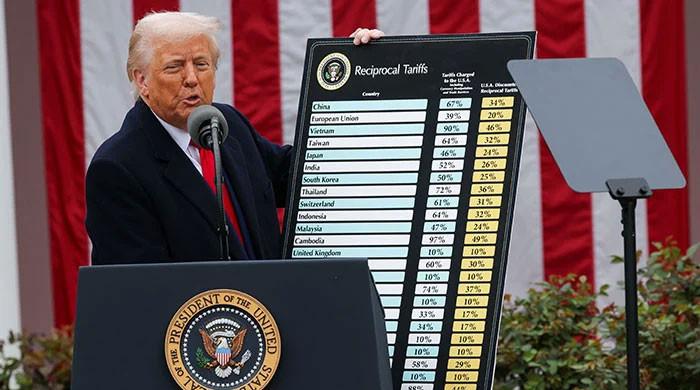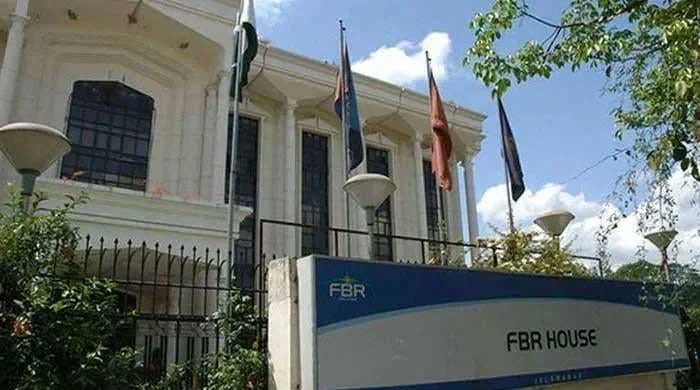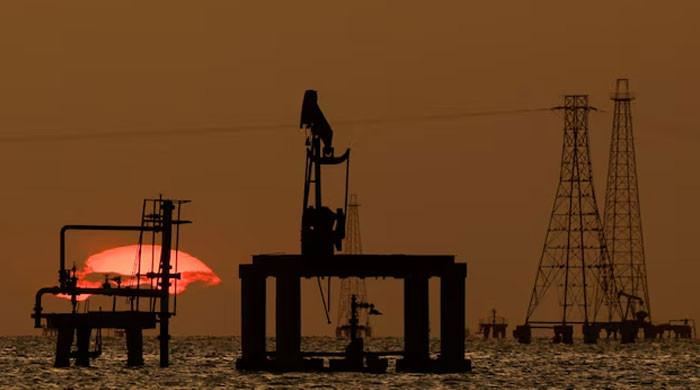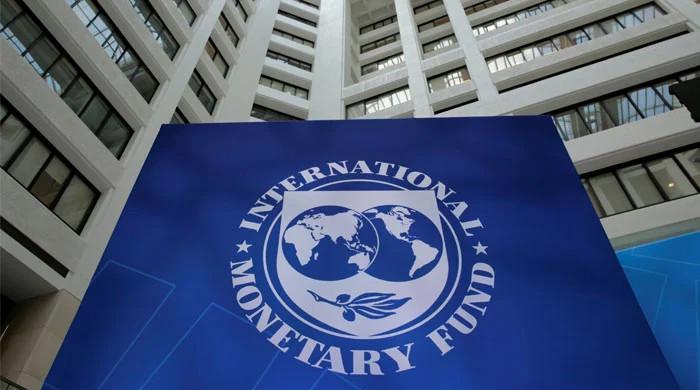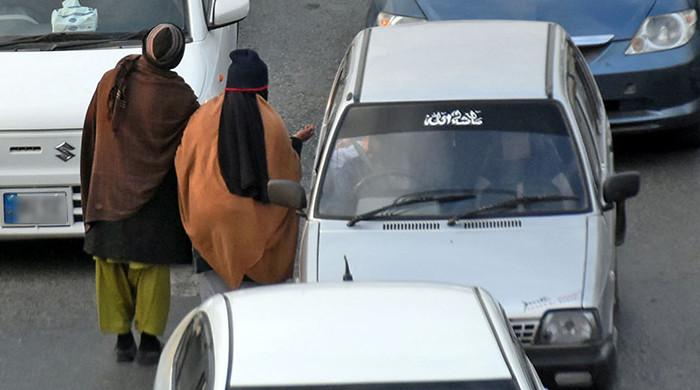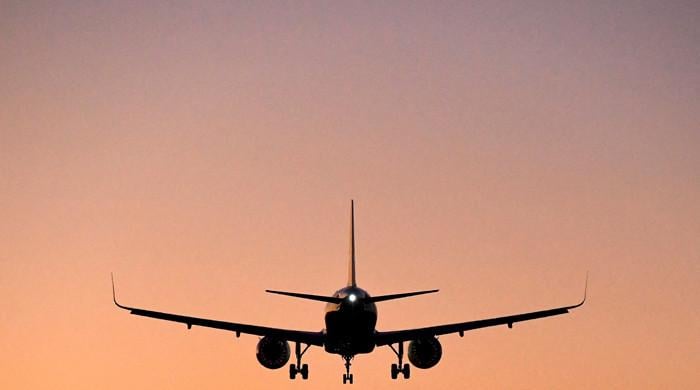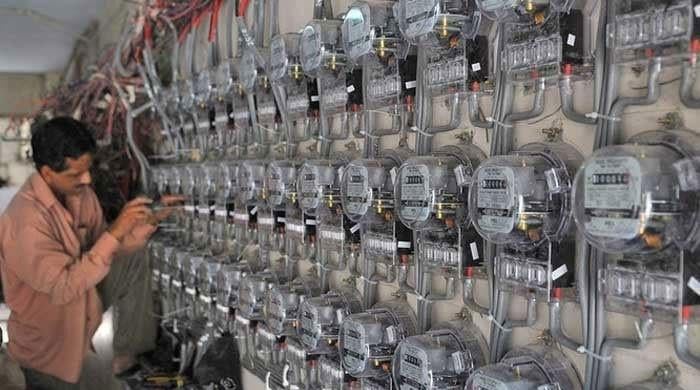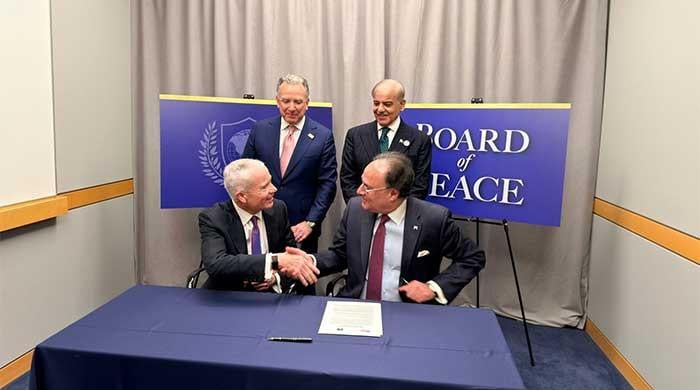PM Shehbaz asks IMF for restructuring 'pause'
IMF officials hold "good meeting" with FinMin Ishaq Dar on sidelines of Geneva moot
January 09, 2023
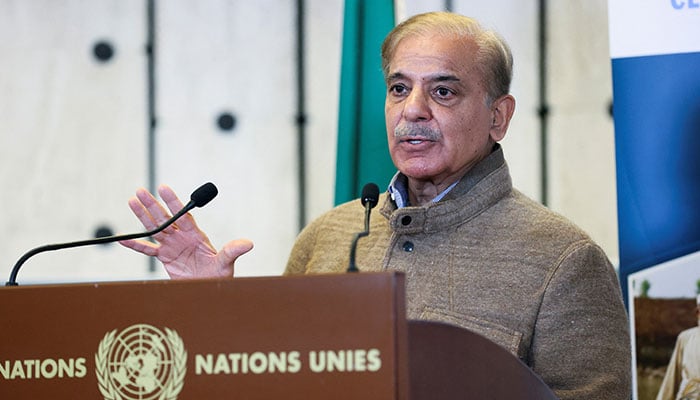
- IMF officials hold "good meeting" with FinMin on sidelines of Geneva moot.
- "We will do everything to comply with terms and conditions of IMF," PM says.
- Britain encourages Pakistan to conclude ninth review of IMF programme.
GENEVA: Prime Minister Shehbaz Sharif on Monday asked the International Monetary Fund (IMF) for a pause in its demands for economic reforms before releasing more financial aid, as the country tries to rebuild after catastrophic floods.
In a press conference in Switzerland's Geneva, PM Shehbaz said he was trying to persuade the Fund to give Islamabad some breathing space as it tackles the "nightmarish" situation.
The global lender wants Pakistan to withdraw the remaining subsidies on petroleum products and electricity, aimed at helping the masses.
In Geneva for a conference on Pakistan's recovery from last year's catastrophic monsoon floods, PM Shehbaz was asked by reporters about the block on IMF funds.
Pakistan's economy has crumbled alongside a simmering political crisis, with the rupee plummeting and inflation at decades-high levels, but the floods and the global energy crisis have piled on further pressure.
PM Shehbaz came to the office in April last year, ahead of the floods in July and August.
A $6-billion IMF deal negotiated by the previous government was restarted after Pakistan finally met conditions such as ending subsidies on fuel.
But Islamabad has so far only received half the funds — the last payment in August — with a further review of the package ongoing.
"Even before these floods hit Pakistan, we were already facing humongous challenges," he said.
"Yet we had to again connect with the IMF and resurrect an agreement which was violated by the previous government — and accept even harsher conditionalities," said PM Shehbaz.
He said Pakistan was complying with the IMF's conditions "as best as possible" but asked "how on Earth" the additional burdens could be shouldered by the country's poorest.
"Yet we are committed to IMF's programme. We will do everything to comply with the terms and conditions. Though I am constantly trying to persuade them: please give us a pause," he said.
'Be considerate'
PM Shehbaz said he spoke with IMF Managing Director Kristalina Georgieva on Saturday and asked her to "kindly be considerate and compassionate and give us some breathing space".
"This is an ongoing dialogue. I'm sure one day soon we will be able to convince them through logic and through facts.
"That said, regardless, we will comply with the IMF programme."
Economists and traders estimate the country has around three weeks of foreign exchange reserves left to service imports and a swift IMF cash injection is the only way to shore up the economy.
At the Geneva conference, Britain encouraged Pakistan to continue its macroeconomic reforms and conclude the ninth review of the IMF programme.
Development Minister Andrew Mitchell said it would be much easier for the world to help Pakistan "if Pakistani taxpayers are seen to be playing a core part in this effort".
Meanwhile, French President Emmanuel Macron said at the conference that Paris was ready to support Pakistan in its talks with financial institutions.
Dar meets IMF officials
Pakistan reiterated its commitment to completing a programme with the lender of the last resort in a meeting on the sidelines of the Geneva moot on Monday, the finance ministry said in a statement.
Finance Minister Ishaq Dar and IMF officials "discussed challenges to regional economies in the wake of climate change," according to the statement following the meeting's conclusion. "[The] finance minister reiterated the commitment to complete the Fund program," it added.
"It was a good meeting but I do not have any statements to make," Athanasios Arvanitis, deputy director of the IMF's Middle East and Central Asia Department, told Reuters immediately after it ended.





